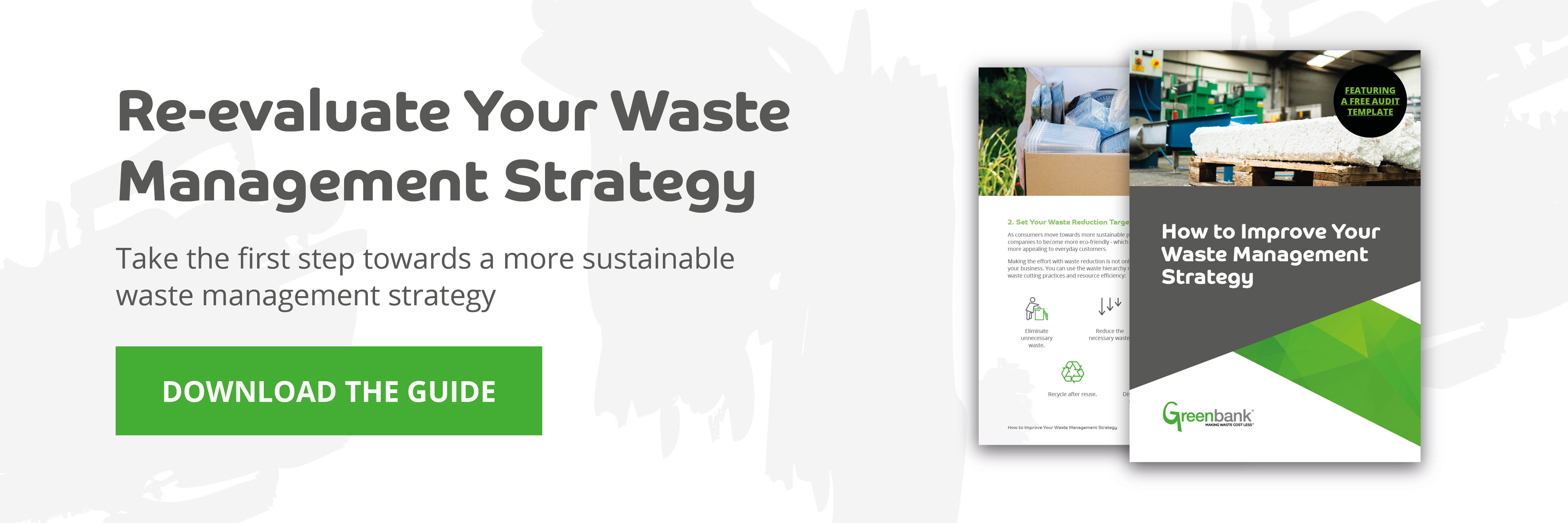On April 1st 2020, the UK Landfill Tax was raised from £91.35/tonne to £94.15/tonne. It’s been steadily increasing for a number of years. This is the standard rate, with the rate for ‘inert’ waste (waste that is neither chemically or biologically reactive, such as sand or concrete), being much lower, at £3/tonne.
It’s an important tax for any British business and can, in some cases, represent a good amount of your monthly and yearly expenditure. So what’s the background behind the Landfill Tax? And what can you expect to pay in the future?
Behind the Landfill Tax
The Landfill Tax is a relatively new tax, only being introduced in 1996 by Conservative Secretary of State for the Environment, John Gummer. It’s famous for being the UK’s very first environmental tax.
It’s currently seen as a way for the UK to meet the targets of the Landfill Directive, which was put in place by the European Union in 1999 to regulate the management of landfills. The Landfill Tax increases the cost of landfill through taxation, but helps to make other, more advanced methods of waste disposal and treatment more financially attractive.
The amount you pay depends on the weight and type of waste. The operator of the landfill is responsible for paying the tax, but will pass the appropriate cost on to businesses, local councils and individuals who use the site, alongside operational fees. VAT is then charged on top of that.
The Office for Budget Responsibility expected the Landfill Tax to raise £0.8 billion between 2019 and 2020. Currently, Scotland and Wales manage their own landfill taxes, yet, like the UK, they are both £94.15/tonne respectively.
Landfill Tax Implications
The Landfill Tax obviously has a number of financial implications for businesses. For those that generate a lot of non-recyclable waste, you’ll be expected to pay the tax on top of operational costs and VAT for each amount of waste material you dispose of. It’s simple, the more waste going to landfill, the more you’ll be expected to pay.
Beware of compliance issues. For fly-tipping or waste disposal at non-registered sites, you’ll still be expected to pay the Landfill Tax. You may also have to pay a penalty or be taken to court. You can check the list of registered landfill operators here.
For business owners, Landfill Tax and other waste-related compliance issues can spell disaster. If you’re not working with a registered landfill operator or are dealing with waste in a non-compliant way, you could be facing serious fines or even jail time.
To explore more of the related compliance issues and costs, you can read our blog on the results of poor waste management.
How to Reduce Landfill-Associated Costs
The answer is simple – reduce the amount of waste being sent to landfill. You can do this by exploring the types of waste you produce and setting up effective waste management policies for all of them.
For example, make sure to sort your waste in recyclables, non-recyclables and any waste you can turn into further revenue streams, such as polystyrene. You can also look into waste management solution providers that can help you reduce your waste amounts at source by auditing your sites and creating a bespoke waste management plan for you.
Landfill use will sometimes require the need for skip hire as well. These costs vary, with a large skip costing anywhere from £150 to £240 a week. For recycling & waste managers, skips can represent an outdated waste management procedure that costs more than they’re worth.
Imagine, as a recycling & waste manager, you’re concerned about the amount of potentially-recyclable waste sitting in skips before going to landfill. Not only does this require financial investment but also physical labour.
Now, consider you implement a waste management policy that sorts your waste into streams, removes and recycles specific waste, while leaving the non-recyclable waste alone. You may find that the amount of skips or waste collection trips you usually need decreases. The use of machinery, such as portable compactors and vertical balers, can help you physically reduce the size of your waste, meaning fewer skips or collections are needed for the same amount of waste.
The Landfill Tax impacts your business as a whole in terms of both cost and compliance, as any breach in regulation could cost you a fair amount, hitting your financial health and your employees. However, with the right machinery and the right waste management solutions in place, you can remain compliant and lower the costs of landfill.
For example, why not consider a mill size baler for your organisation? They’re designed to handle larger volumes of waste and require no structural changes to your site, helping to reduce business waste by up to 90%.
However, before you consider this, know that developing a better waste management strategy is the first step in reducing waste volumes, reducing overheads and decreasing risk of non-compliance. If you’re more interested in getting those steps right first, download our helpful guide to effective waste management.
Improving Your Waste Management Strategies
The Landfill Tax is one thing to be aware of. However, how can you ensure your site is effectively disposing waste? How do you know if the waste management machinery you’ve purchased is going to capture a good return on your investment? The answers are hard to come by.
However, in our guide, we work to provide these answers for you, covering the best practices for waste management you can start to implement.
To get your free copy, just click the button below.





